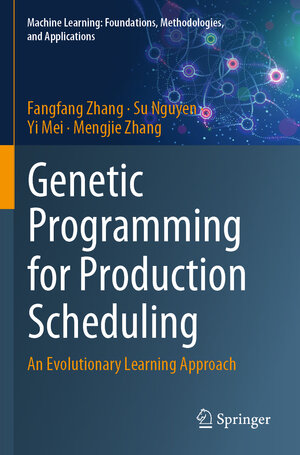
Genetic Programming for Production Scheduling
An Evolutionary Learning Approach
von Fangfang Zhang, Su Nguyen, Yi Mei und Mengjie ZhangThis book introduces readers to an evolutionary learning approach, specifically genetic programming (GP), for production scheduling. The book is divided into six parts. In Part I, it provides an introduction to production scheduling, existing solution methods, and the GP approach to production scheduling. Characteristics of production environments, problem formulations, an abstract GP framework for production scheduling, and evaluation criteria are also presented. Part II shows various ways that GP can be employed to solve static production scheduling problems and their connections with conventional operation research methods. In turn, Part III shows how to design GP algorithms for dynamic production scheduling problems and describes advanced techniques for enhancing GP’s performance, including feature selection, surrogate modeling, and specialized genetic operators. In Part IV, the book addresses how to use heuristics to deal with multiple, potentially conflicting objectives in production scheduling problems, and presents an advanced multi-objective approach with cooperative coevolution techniques or multi-tree representations. Part V demonstrates how to use multitask learning techniques in the hyper-heuristics space for production scheduling. It also shows how surrogate techniques and assisted task selection strategies can benefit multitask learning with GP for learning heuristics in the context of production scheduling. Part VI rounds out the text with an outlook on the future.
Given its scope, the book benefits scientists, engineers, researchers, practitioners, postgraduates, and undergraduates in the areas of machine learning, artificial intelligence, evolutionary computation, operations research, and industrial engineering.



